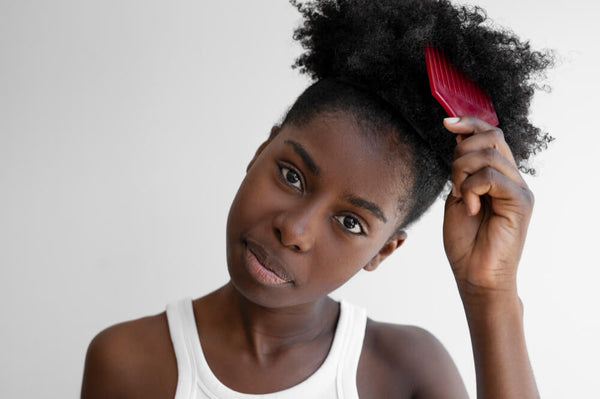I'll never forget when Maya, a 32-year-old accountant, came to my Atlanta clinic with a folder full of lab results and product receipts. "I've seen three doctors," she told me. "One said it's stress, another said it's genetic, and the third told me to try Rogaine. But nobody actually looked at my hair."
She'd been shedding for eighteen months, watching her part widen slowly but steadily. Each doctor had spent about five minutes with her before writing a prescription or offering vague advice. Meanwhile, her confidence was disappearing along with her hair.
This is exactly why I became a trichologist. Because hair loss isn't a single problem with a single solution—it's a puzzle that requires someone who knows how to look at all the pieces.
Why Your Doctor Might Be Missing What's Obvious
Most physicians are trained to treat emergencies and life-threatening conditions. When you come in with hair loss, they often run basic blood work and if everything looks "normal," they default to the easiest explanation: genetics or stress.
But here's what they're not trained to see: the difference between early CCCA and genetic thinning. The distinctive pattern of traction alopecia versus telogen effluvium. How low ferritin can cause shedding even when your hemoglobin is fine.
A trichologist spends the entire appointment looking at what everyone else misses. We're not just checking your blood—we're examining your scalp under magnification, analyzing your hair's growth cycles, and connecting the dots between your symptoms and their root causes.
The Three Things That Make Trichology Different
Where dermatology often focuses on skin diseases and general practitioners look at overall health, trichology exists in that specific space where hair and systemic health meet. We understand that your hair might be the first place your body shows signs of imbalance.
We don't just treat what's happening on your scalp—we investigate why it's happening. That thinning hair could be pointing to gut issues, hormonal imbalances, or autoimmune conditions that haven't shown up anywhere else in your body yet.
And maybe most importantly, we specialize in conditions that predominantly affect Black women. We understand the unique architecture of our hair follicles, the impact of common styling practices, and how to distinguish between temporary shedding and permanent scarring alopecia.
What Actually Happens During a Trichology Evaluation
When you come to our clinic, we start by listening to your entire story. Not just when the shedding started, but what was happening in your life around that time. We ask about everything like your usual stress levels and even your styling habits.
Then we examine your scalp with specialized tools that let us see what's happening beneath the surface. We're looking for the tiny white dots that signal CCCA, the inflammation patterns that suggest autoimmune activity, the miniaturization that indicates hormonal issues.
We might run labs, but we're ordering specific tests that other doctors often skip. We check your ferritin levels, not just your hemoglobin. Not only TSH, but we also consider your complete thyroid panel. We carry out hormone ratio tests which can show us even any subtle imbalances.
How We Create Solutions That Actually Work
Once we have your health profile details, we build a personal plan for you that might include medical treatments, lifestyle changes and advanced therapies.
For women with early scarring alopecia, we might use exosome therapy to reverse the damage and also to stop the immune system from attacking. In case of hormonal hair loss, we design hormone-balancing programs along with local DHT inhibition at the hair follicle level.
But we also address the practical realities of your life. We don't just tell you to "stop wearing braids"—we teach you how to protect your edges while still enjoying the styles you love. We help you find the right products for your specific condition, not just whatever is trending on social media.
The Difference Between a Trichologist and a "Hair Specialist"
Here's what sets a board-certified trichologist apart from someone who just calls themselves a hair expert: medical training, diagnostic capabilities, and treatment options.
A stylist might recommend products. A trichologist can diagnose autoimmune conditions. An influencer might share what worked for them. A trichologist will create personal plans that’ll be based on your specific lab results and scalp analysis.
Also, we have access to medical-grade treatments that include PRP and exosome therapy. Such treatments simply aren't available in salons or spas.
More importantly, we know when these advanced treatments are appropriate—and when they're not the right solution.
Ready to Stop the Guessing Game?
If you're tired of throwing random solutions at your hair loss without understanding what's actually causing it, maybe it's time to consult with someone who specializes in exactly this type of detective work.
Your hair doesn't have to remain a mystery. Book your Hair Therapy Evaluation with us today for just $99 and let's create a plan that addresses the root causes and not just the symptoms.














